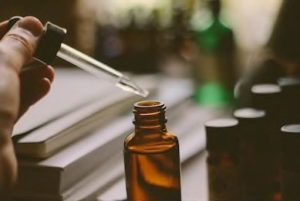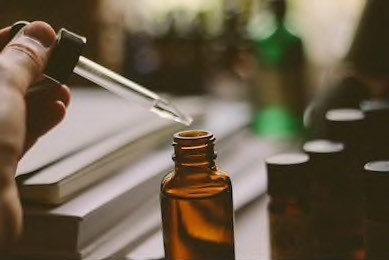
Are you considering taking CBD as part of your wellness regiment? Before running off to the metaphorical hemp bank, and cashing in on all of the numerous health benefits of CBD that you’ve undoubtedly heard of by now, you first have to determine whether or not the CBD you’d like to start taking is a safe product, and whether or not CBD is safe for you at all.
Over the past few years, it seems that the more we learned about cannabidiol, the more we found ourselves recommending it to friends and loved ones. It naturally followed suit that we also grew more accustomed to people asking us the big questions.
“What is CBD?”
“How does it work?”
“What if I don’t want the psychoactive effects of marijuana?”
“What’s the correct dosage amount?”
“Is it legal?”
These questions are pretty high up there on that list of “big questions,” but far and away the most important question of all is, “Is CBD safe?” The problem with giving a direct answer to the safety question is that the answer is significantly more individualized than you might think. There are really two separate issues to consider. The first issue is product quality.
There was a multi-year study done a couple of years ago where the FDA tested a random sampling of more than 80 CBD products annually. The products were ordered in the U.S. from domestic, online sources. Roughly 70% of the products in the study where not true to their label claims. Basically, some of those products contained a lot more CBD than the label stated, the majority of the products tested contained significantly less CBD than was stated on the label, and a small percentage of those products didn’t contain any CBD at all. Unfortunately, the accurate quantity of CBD in some products, is not the only information you should consider “missing” from the label. The study also showed that several products contained significantly more than the 0.3% THC allowable by law.
Other products showed potentially harmful amounts of residual toxins left behind by solvents used in the CBD extraction process, or by fertilizers and pesticides used in growing and cultivating the crops in the first place. In each case, the remaining toxins were found in the base oil, (or carrier oil) containing the CBD, not the CBD itself.
In one respect CBD is absolutely safe. If it is actually CBD you’re getting, you stand very little chance of having any adverse effects whatsoever, and if some adverse effects do appear, they would present as mild fatigue, drowsiness, nausea, dry mouth, dizziness, loss of appetite, or possibly even diarrhea. Research indicates most of those adverse side effects can be avoided through proper titration. Simply put, proper titration means starting with a very low dose of CBD, and building to a higher dose over time. In 2017, the World Health Organization’s Department of Essential Medicines and Health Products released their report after an extensive study of CBD. The report states, “… there is no evidence of any public health related problems associated with the use of pure CBD.”
The problem is that it’s very difficult for the average consumer to decipher what’s true and what’s fabricated when it comes to sourcing the best CBD products available. People need products that not only contain actual CBD but, also hold true to their label claims regarding CBD quantities, and don’t contain potentially hazardous toxins. Furthermore, there is no magic bullet, or shortcut when it comes to properly vetting these therapeutics and their manufacturers. You would have to order product samples, send them off for expensive third party testing, meet face to face with the ownership of the manufacturing companies, tour the farms and take soil samples for testing, examine the extraction and production facilities, and verify their USDA and FDA certifications. It simply isn’t possible for an individual consumer to do those things alone.
Because FarmersMarketWellness.com was founded on the philosophy that all people deserve affordable access to the best available wellness products on the market, we go through the lengthy process of vetting these products for our distributors, wholesalers, and retail customers, and only carry brands that we would approve for use by our own family members and pets. If you’re not purchasing your CBD products from us (or the retailers we supply), please make sure that you’re purchasing them from an equally trusted source.
The second issue with regard to CBD safety directly relates to prescription medications that you (or the loved one you’re caring for) may currently be taking, and what scientists and physicians call, the “first pass” effect. Most prescription medications are administered orally in the form of liquids or pills that are swallowed, and digested. Medications that are ingested are absorbed while in the intestinal tract by the intestinal mucosa, and delivered to the liver. Once in the liver, these medications are broken down (or metabolized) by liver enzymes, prior to them being released into the bloodstream to make contact with the brain and other organs. (Conversely, medications taken sublingually, in inhalant form, or in suppository form do not get processed by the liver because they are absorbed by mucous membranes and delivered directly into the bloodstream without having undergone first-pass metabolism).
When you take a 200 mg ibuprofen pill for instance, far less than 200 mg of ibuprofen ever make it into your bloodstream because a certain percentage of it is destroyed during first-pass metabolism in the liver. When a physician prescribes a medication for you, he or she always accounts for the rate of degradation that occurs to the strength of the medication during first pass metabolism. CBD acts as an antagonist to certain groups of liver enzymes that are useful in breaking down, and metabolizing particular types of medications. People on medium or high dose CBD therapeutics can accidentally be increasing medication levels in their bloodstream as the CBD inhibits the liver’s ability to metabolize some medications.
As with using any of our products, (or anyone else’s nutritional, dietary, or therapeutic supplements), we strongly urge you to consult with your physician prior to starting or changing any wellness regiment. The problem is a lot of medical practitioners didn’t receive educational training regarding the endocannabinoid system, or cannabinoids in general while in med school. Even today, only roughly 20% of the medical schools in the United States have developed curriculum to teach future physicians about the functionality and necessity of the endocannabinoid system.
A lot of physicians, uncomfortable with their own lack of knowledge, advise against using CBD therapeutics, simply stating that the science is too new, and further study is necessary. In some cases, this can also result from fear of lawsuits, legal liability, and malpractice claims. Although we’ve known about the endocannabinoid system for two-and-a-half decades, the laws have yet to catch up with the research. For example, your veterinarian cannot legally recommend CBD supplement therapy for your dog unless you first ask them about it, even if they use it on their own pets, and know firsthand that it works!
If your doctor can’t provide you with a good answer because he or she doesn’t know enough about CBD, the endocannabinoid system, or associated drug interactions, please feel free to email us at info@FarmersMarketWellness.com and we’ll be happy to provide your physician with links to peer reviewed, Medical Journal published studies pertaining to the effects of cannabinoid therapy effectiveness in the treatment of any number of ailments. We don’t go through the process of posting those studies here because they’re not easily readable and digestible by the public at large. Also, with more than 20,000 different studies conducted, there are entirely too many to publish.
In a very general sense, CBD is safe. Purchasing CBD products from a trusted, reputable company, and considering how CBD may affect the prescription medications you’re taking are paramount to ensuring that you don’t suffer any unintended consequences, so again, please consult your primary care provider prior to starting or changing any wellness regiment.
You can find this article in The Farmhouse Press blog on FarmersMarketWellness.com. We’re here to help you take the guesswork and risk out of your wellness journey. Please let us know how we can help you, and thank you for your patronage & support.
